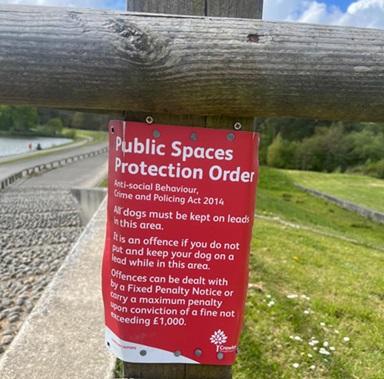A Public Spaces Protection Order (PSPO) is a powerful tool introduced in 2014 under the Anti-Social Behaviour, Crime and Policing Act 2014. These orders empower local authorities to address anti-social behaviour (ASB) in specific public spaces within their jurisdictions. PSPOs aim to ensure that public spaces can be enjoyed without interference from anti-social behaviour.
Legislative Background
The Anti-Social Behaviour, Crime and Policing Act 2014 brought several new tools and powers for local councils and their partners to combat ASB. These tools replaced and streamlined previous measures, emphasizing the impact of behaviour on both communities and vulnerable individuals. PSPOs are one such tool available under this act.
Key Features of PSPOs
- Wide-Ranging and Flexible: PSPOs grant local authorities broad and flexible powers to address specific nuisances in designated public spaces.
- Targeted Approach: PSPOs focus on particular behaviours that negatively impact the quality of life for people in those spaces.
- Replacing Previous Measures: PSPOs replace earlier measures such as designated public place orders, gating orders, and dog control orders.
Purpose of PSPOs
PSPOs are not about restricting responsible use of public spaces or preventing young people from socializing. Instead, they provide councils with an additional instrument to tackle persistent issues that harm their communities. When used appropriately, proportionately, and with local support, PSPOs can effectively prevent anti-social behaviour.
PSPO Validity
A Public Spaces Protection Order (PSPO) can last for up to three years. After this initial period, it must be reviewed. If the review supports an extension and other requirements are met, the PSPO may be extended for an additional three years. There is no limit on the number of times an order can be reviewed and renewed
Example PSPO
The image used in this article was taken at Tilgate Park in Crawley West Sussex. There is a PSPO in place that states all dogs must be kept on a lead.
Dog control – Tilgate Park Public Spaces Protection Order (PDF, 10.22 MB)
Dog control – Tilgate Park Public Spaces Protection Order map (JPG, 258.98 KB)
Practical Guidance
Local areas contemplating the introduction of a PSPO should consider the following steps:
- Assess the Need: Identify specific anti-social behavior issues affecting the locality.
- Consult with Stakeholders: Engage with residents, businesses, and community groups to understand their concerns.
- Draft the PSPO: Define the prohibited behaviors and geographical area.
- Statutory Guidance: Read the Home Office’s statutory guidance on the Anti-social Behaviour, Crime and Policing Act 2014.
Relevant Guidance
For more detailed information, refer to the following resources:
- Local Government Association (LGA): PSPO Guidance for Councils
- Wikipedia: Public Spaces Protection Order
Remember, PSPOs can be a positive tool when used judiciously to enhance community safety and well-being.
Check out our articles on What is the Law ?, Rule of Law, Open Justice and the highly questionable Sussex Family Justice Board.
Read the reviews of Junior Sussex Barrister Gavin Howe
“He is awful, underhanded and should not be practising law!”
and Legal 500 Junior Barrister Eleanor Battie
“She is a one-woman legal A Team”
Latest Articles
- Solicitors from HellSolicitors from Hell (www.solicitorsfromhell.co.uk) was a website that gained notoriety for allowing users to post negative reviews and complaints about… Read more: Solicitors from Hell
- Solicitors Regulation Authority (SRA)The Solicitors Regulation Authority (SRA) is the independent regulatory body responsible for overseeing and “policing” solicitors in England and Wales.… Read more: Solicitors Regulation Authority (SRA)
- What does Lady Justice Symbolise ?Lady Justice, often depicted as a graceful figure holding a sword, scales, and sometimes wearing a blindfold, is an iconic… Read more: What does Lady Justice Symbolise ?
- What is the Legal Services Board ?The Legal Services Board (LSB) is an independent regulatory body that oversees the legal services sector in England and Wales.… Read more: What is the Legal Services Board ?




